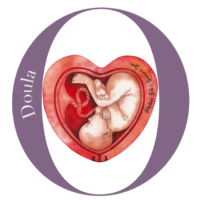It can take a whole lot of courage to reach through darkness and ask for help.
Consider a frantic call to 911. It might go something like this:
~~~
Dispatcher: “911, what is your emergency?”
You: (frantically blurting out the immediate situation)
Dispatcher: ****
“Please stay on the line, while I dispatch an officer to your location.”
****
There’s a certain number of things your dispatcher will do in this space. He or she will want to get information about your environment, including the danger(s) you are in and who all might be involved. He or she will need identifying information from you so that the officer(s) will know a little more of what to expect upon arrival. What are you wearing? Where are you exactly? And he or she will want to assist in any temporary safety until the officer(s) get there – guiding with CPR, for example.
~~~
So let’s translate that to a different kind of cry for help.
“Will you pray for me?”
I’ve heard it, I’ve seen it, I’ve asked it myself.
I’ve seen people ask for help, and, I have seen other people simply assume that this is the help that someone is asking for. And so they respond like this:
“I’ll pray for you.”
I’ll pray for you.
As a praying person myself, I have a few fundamental concerns with this phrase.
Because, it is a phrase.
It is a shallow response.
I’ll pray for you.
Really? When?
Because we are so easily distracted in this fast paced world, what is the likelihood of remembering a 30 second interaction when you do carve out your prayer time?
Why does the prayer need to wait until then?
How many times will you remember to pray for the person?
What, exactly, will you be praying for?
Does the person want you to pray for them? Does the person want you to pray for what you’re praying for?
And how is the person expected to respond? A retort like this, in basic conversational structure, automatically elicits a “thank you” from the requestor.
Thank you. The end. And now we all can move on.
“I’ll pray for you.”
It is a response that is not only insufficient to the recipient, but for those witnesses who are trying to sort out if prayer or praying people are even trustworthy, I can promise you that they are not too entirely impressed with this shallow response either. Not when they know what it’s like to seek real, urgent, tangible help like the 911 call example above.
It’s really about as efficient as leaving a tract as a tip for a waitress.
So, if someone has cried out for help and you have heard this cry, here is an alternative response:
“I want to know.”
Still four words, easy to lock in your mind. Practice them aloud right now:
“I want to know.”
If it’s social media, you can send the requestor a private message.
If it’s somewhere else, call the person on the phone. Or send them a card.
“I saw your cry for help. And I want to know, how to pray for you.”
Like the dispatcher, you aren’t just there to answer a call, but to actually respond to it.
Invite the person to offer more details. See how you can help in a very tangible way until stronger support arrives.
I saw your cry for help. And I want to know, what I can do in a tangible way to support you with what you’re facing.
And if the person simply has an unspoken need, you can pray for all of the circumstances surrounding it and all the people impacted by it, and still offer tangible support.
It’s like leaving a tract if you want to, but offering 20% of the tab, too.
Because we might not live on bread alone, but Jesus sure said pretty clearly “You feed them!” in Matthew 14:15-16 (and incidentally, multiplied the bread).
Here’s 5 tips to skip “I’ll pray for you”:
- If someone has asked you for prayer, pray right then.
- Ask if there is a specific need or answer they are praying for. “I want to know…”
- Let them hear, see or know what you are praying for.
- Ask if there is a specific need or answer that you can tangibly respond to or help fulfill. “I was thinking…. would this be helpful to you?”
- Check back in with them and ask if there is an update to the situation, and start back at one.
You can visit our support for loved ones for more guidance in supporting your grieving loved one.













